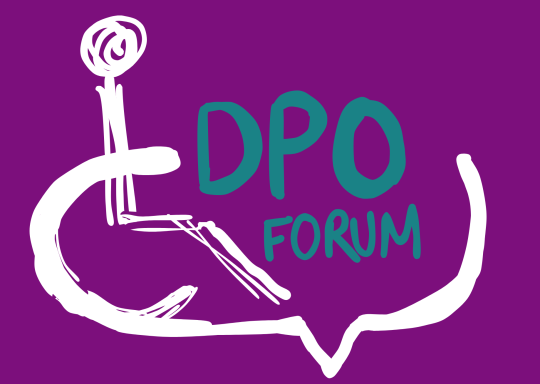Benefits
Current Situation
The welfare system should provide a financial safety net for Disabled people and those with long-term health conditions.
The level of support should be such that Disabled people can live independent lives.
Yet, since 2008, changes to welfare benefits have led to this safety net failing, causing people to feel abandoned by a cruel and unfair system.
Welfare reforms introduced in that period include the introduction of employment and support allowance, the work capability assessment, personal independence payment, the bedroom tax, the benefit cap, the two child limit, and universal credit, all of which have negatively impacted on Disabled people.
Disabled people have lost benefit payments of around £1,200 on average each year, as a result of the changes. Non-disabled people have seen a reduction of around £300.
For anyone, a reduction of financial support can be detrimental. But for disabled people, who already face average extra disability-related costs of £583 each month, the loss of money can be devastating.
Disabled people don’t just lose money – they lose access to transport, their independence, and in some cases, their jobs. The support they receive through welfare benefits provides only for the basic standards of living, but not the extra costs disabled people face.
Key Evidence
One third of disabled people are estimated to live in poverty.
52% of Disabled people report they have experienced extra costs or bills as a result of their disability or health condition, rising to more than two-thirds of people with mobility needs, chronic pain or dexterity conditions.
January 2023 research by the Resolution Foundation highlight that Disabled people are hardest hit by the Cost-of-living crisis, disproportionately struggling to pay energy costs and food bills. Disabled people were found to be 1 in 3 households in the most deprived areas.
This research also highlights that:
- Disabled people are far more likely to be poor than the rest of the population. One-in-three (33%) adults in the lowest household income decile have a disability, compared to fewer than one-in-ten (9%) of adults in the highest household income decile.
- Disabled people with a disability are almost three times as likely to live in material deprivation than the rest of the population (34% vs 13%).
- Disabled people have been stung by fast rising energy and food prices. Almost half (48%) of disabled adults say they have had to cut back on energy use this winter, compared to almost one-third (32%) of people without a disability.
- Around two-fifths of Disabled (41%) said they couldn’t afford to keep their homes warm, compared to under one-fifth (23%) of the non-disabled population.
- Almost one-in-three (31%) Disabled people say they have had to reduce their expenditures on food, compared to 18% of the non-disabled population.
Policy Asks
A new benefits system
The Government must meet its responsibilities under the United Nations Convention on the Rights of People with Disabilities.
A new benefits system must be co-produced with Disabled people.
The new system should be designed to address the barriers that Disabled people face.
It should also consider the extra costs that Disabled people have.
Benefit related deaths
The number of secret reviews into deaths of benefit claimants that have been linked to the failings of the Department for Work and Pensions (DWP) has more than doubled over the last three years.
The DWP should have a legal duty of care towards recipients of benefit.
There should be an independent inquiry into benefit related deaths.
All DWP investigation reports into benefit related deaths should be made public.
The DWP should ensure that disabled claimants are made aware that they have rights to reasonable adjustments under the Equality Act 2010 and ensure that requested reasonable adjustments are met.
Abolish the work capability assessment (WCA)
The WCA only looks at a limited number of factors, focusing purely on tasks Disabled people can and can’t do because of their impairments or conditions.
A new assessment must be developed, co-produced with disabled people, which bases employment support on the challenges, goals and personal needs.
Disabled students
The rules that exclude Disabled students from receiving universal credit should be withdrawn.
Transformative changes to the benefits system
DR UK supports The Plan for a Decent Social Security System, produced by the Commission on Social Security - led by experts by experience, which calls for the following transformational changes:
- A new ethos of dignity, respect, trust and support.
- Child benefit at the same rate for every child.
- The importance of other factors in providing social security – good jobs, housing, childcare and so on – would be recognised and acted on.
The Commission’s proposed Guaranteed Decent Income (GDI) would:
- replace Universal Credit and all other legacy benefits.
- have no sanctions, no benefit cap, no bedroom tax, no conditionality, no five week wait for first payment and no two child limit.
- meet the Joseph Rowntree Foundation Minimum Income Standards for what amount of money is needed for an acceptable standard of living.
- include a Disability Supplement as part of GDI.
- Introduce a new non-means tested benefit to meet the additional costs of disability, to replace PIP.
The replacement for PIP would be:
- Non means tested.
- Designed in full co-production with Disabled people.
- Principles: annual uprating, no one financially worse off, as little burden on claimants as possible for assessment and review, awarded based on need (not top down targets), no risk that anyone will be left with nothing at any point.
- Individualised assessments based on the claimant’s self-identified support needs and testimony.
- A collaborative approach to decision making; assessors/decision makers to have in depth training and understanding of the social model of disability, and impairment and illness awareness.
- More paper based decisions; if decision cannot be made just on
paper evidence then assessment venue and type to be of claimant’s choosing. All forms and communication to be available in accessible formats. - Free advocacy provided by user led services; fast, accessible,
transparent appeals process. - Take account of a person’s full circumstances such as the need for a buddy when travelling or the multiple access barriers Deaf people face.
- No separate care and mobility components; lifetime awards to be available; longer gaps between reviews.
- Be payable to working age and pension age adults.
Targeted Decision Makers
The Department for Work and Pensions (DWP), Minster for Disabled People, and the Secretary of State for Wok and Pensions.
Partners and Allies
These include Disability Forum England, DPOs, the Disability Benefits Consortium (DBC), National Association of Welfare Rights Officers (NAWRA), and the Disability Poverty Campaign Group (DPCG).
Campaign Action
We have partnered with allies in campaigns such as to extend the £20 week universal credit uplift, Stop Benefit Deaths, increasing sick pay, prescription charge reform, benefit assessment reform and cost of living support.
We have provided evidence with regard to legal action challenging the exclusion of disabled students from universal credit.
We respond to consultations, for example, to the Work and Pensions Committee on migration universal credit, to the Social Security Advisory Committee on how the DWP should better interact with Disabled people and to the DWP with regard to the Health and Disability Green Paper.
We’re committed to ensuring Disabled people receive the benefits they are entitled to. Try our benefits calculator and also check our resources for claimants, these include our Universal Credit Guide and Personal Independence Payment Guide





